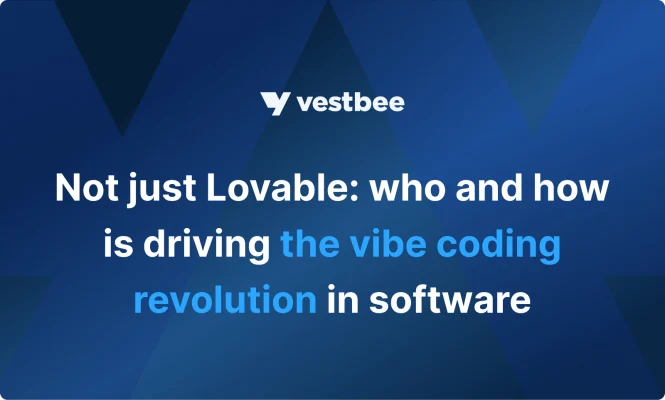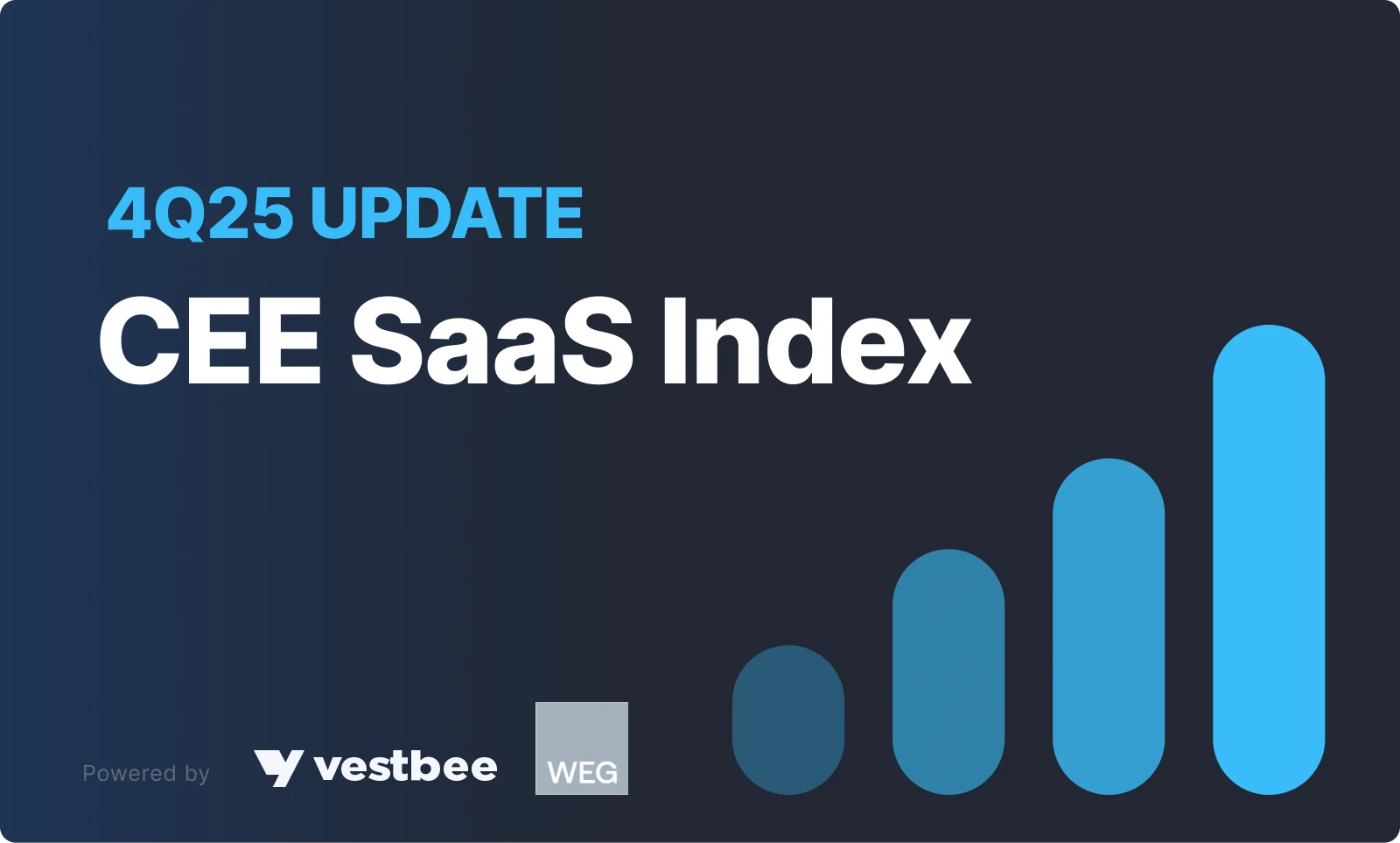Vibe coding originated as a tongue-in-cheek term to describe letting an AI “do the coding while you vibe” and has since evolved into a new paradigm that investors take seriously. The practice of using AI-powered agents to generate code from natural-language prompts is spreading from programming hobbyists to enterprise developers and boardrooms alike.
What is vibe coding?
Coined by computer scientist and OpenAI co-founder Andrej Karpathy, the term captures a new style of programming that prioritizes flow, creativity, and interaction over manual syntax. In essence, it’s building software with an LLM without reviewing the code it writes. Users tell the AI what they want, the model generates and refines code, and together they co-create functioning web apps, APIs, or prototypes. What makes vibe coding distinct from earlier no-code or low-code tools is agency: these systems don’t just automate syntax, they are meant to understand context, retrieve resources, debug issues, and modify entire codebases on command. So in short, it’s not necessarily “no-code”, but rather “code through conversation”.
The market momentum behind vibe coding is huge. The combined valuation of leading startups, like Cognition, Lovable, Replit, Cursor, and Vercel, grew 350% year-on-year, from roughly $7-8 billion in mid-2024 to over $36 billion in 2025. Collectively, these companies now generate an estimated $800 million in ARR despite being, on average, less than three years old.
At the front of this surge is Lovable, the Swedish startup often cited as the category’s breakout success. In July 2025, just eight months after crossing $1 million ARR, Lovable raised $200 million and hit the $100 million ARR mark, making it the fastest-growing startup on record. Its fully agentic AI engine can interpret requests, modify codebases, debug issues, and even create assets autonomously. What sets Lovable apart and drives its staggering success is its culture — users treat building an app the way they once treated making content, remixing, iterating, and sharing their creations in a self-reinforcing feedback loop.
Big tech is riding the vibe coding wave
Unsurprisingly, Big Tech is moving fast to secure territory. Salesforce entered the scene in October 2025 with Agentforce Vibes, an AI-powered development layer that helps teams autonomously build and maintain Salesforce apps. Google is testing its own platform, Opal, that lets users describe mini web apps via text, remix community-built projects, and deploy them directly online. The process is visual and collaborative as users can inspect each AI-generated workflow, adjust prompts, or add new steps manually. OpenAI also continues to shape the foundation layer. Its Codex system has matured into a core agentic-coding system, anchoring this shift toward conversational programming.
Will the next generation of unicorns be “vibe coded”?
Why these innovations matter goes beyond tooling efficiency. Vibe coding is promising to reshape who gets to make software — it seems like a single person with a laptop and an internet connection can now build what once required a small engineering team and months of work.
The accessibility can lower the entry to software entrepreneurship as it won’t be confined to elite coders or well-funded startups. As Y Combinator CEO Garry Tan noted, “25% of startups in the accelerator’s Winter 2025 batch generated 95% of their code using AI tools”. That democratization is already rippling through venture pipelines: new founders can validate ideas and ship their products way faster.
The macro data support the microtrend. Analysts estimate that the AI-assisted programming market, worth $5 billion in 2023, could reach $26 billion by 2030, growing 20-30% annually. Generative AI coding assistants alone are projected to approach $100 billion in market value by the end of the decade. Just as no-code once enabled startups like Airtable and Webflow, vibe coding may produce the next generation of multi-billion-dollar software companies.
Behind the vibe: the risks of compute-heavy coding tools
As promising as the vibe coders seem to be, it’s also important to see the flip side of the coin. Behind the hype are soaring compute bills, fragile unit economics, and low user retention. According to Business Insider, traffic slid sharply for the main startups after a summer peak — the research flagged Lovable down ~40%, Vercel’s v0 down 64% since May, Bolt.new down 27%, and weaker traffic for others. Vibe coders are fundamentally compute-heavy products: real-time code generation, multi-step reasoning, and toolchain orchestration drive very high inference costs.
When startups rent best-in-class models from OpenAI or Anthropic, the per-session cost can exceed the average revenue per user for typical users. Building in-house models is the canonical fix, but requires enormous capex (training compute), time, and rare ML talent. Another issue is that vibe coding can be great for rapid prototyping and idea validation, but many users hit complexity walls when projects get more complicated. That limits stickiness: users can sketch with vibe tools and then migrate to conventional engineering for production, lowering long-term monetization potential.
Lovable isn’t alone. Here are the leading vibe coding startups
Nevertheless, vibe coding is a real and valuable concept. To determine whether recent hype masks a fragile business model at heart, it’s important to have a look at some of the leading players in the field, their recent developments, and funding. The following section maps the startups defining this race and the capital flowing behind them.
*The financial data is taken from DaaS platforms like Crunchbase and Dealroom.
Cursor and profitability debate it caused
Enterprise value: $9.0B
Total funding amount: $1.1B
Cursor started as a chat-first code assistant and quickly pushed into agentic workflows: an AI that not only suggests snippets but can apply multi-file edits, run terminal commands, and iterate on an entire codebase. Investors have noticed its potential. In June 2025, Anysphere, the developer of Cursor, closed a $900 million round led by Thrive Capital at a post-money valuation of approximately $9.9 billion. Reportedly, the startup has crossed around $500 million ARR after a period of hyper-fast growth, with its revenue roughly doubling every two months during its 2025 surge.
AI code generation remains among the most computationally expensive AI workloads, requiring extended context windows, multi-step reasoning, and continuous inference. Cursor’s pricing structure masks this complexity: its $20/month Pro and $40/month Business plans tap models from OpenAI, Anthropic, Google DeepMind, and xAI — each incurring real-time GPU costs.
According to TechCrunch and PitchBook, Anysphere currently operates with negative gross margins, primarily due to heavy usage by “power users” on its earlier flat-rate plans. In June 2025, the company introduced a usage-based plan with $20 in monthly API credits, after which additional activity is billed at model rates. The rollout triggered user backlash when complex coding tasks quickly depleted credits after only a few prompts. CEO Michael Truell publicly apologized and cited increased model costs as the reason for the change.
The controversy highlights a structural risk for the vibe coding sector: it depends on costly foundational models controlled by a handful of giants. Unless inference costs decline significantly or startups develop proprietary models, maintaining profitability at current subscription prices remains challenging.
Cognition
Enterprise value: $10.2B
Total funding amount: $896M
Cognition AI, the developer of Devin, one of the leading AI software engineering agents, has reached a $10.2 billion valuation after raising $400 million in September 2025. The round was led by Founders Fund, with participation from Lux Capital, 8VC, Elad Gil, Definition Capital, and Swish Ventures. The raise marks a sharp increase from Cognition’s $4 billion valuation earlier in 2025.
Cognition’s core product, Devin, differentiates itself from tools like Cursor or Claude Code through deeper task autonomy — the agent can plan, execute, and debug multi-step coding tasks end-to-end. Devin’s pay-as-you-go pricing model contrasts with Cursor’s subscription-based structure, offering more predictable cost control for enterprise customers.
In July 2025, Cognition acquired Windsurf, a fast-growing AI coding platform previously in talks for a multibillion-dollar acquisition by OpenAI. The acquisition immediately boosted Cognition’s enterprise footprint. CEO Scott Wu reported that ARR more than doubled post-acquisition, and combined enterprise revenue grew by 30% month-over-month.
Vercel
Enterprise value: $9.0B
Total funding amount: $863M
Vercel, the decade-old cloud and developer tools company best known for creating the Next.js web framework, in September raised $300 million at a $9.3 billion valuation. The round was led by Accel and Singapore’s GIC, with participation from BlackRock, StepStone, Khosla Ventures, Schroders, Adams Street Partners, and General Catalyst.
Vercel’s funding will primarily accelerate development of the company’s AI Cloud platform and its flagship AI agent, v0, which now counts over 3.5 million unique users. The agent supports natural-language-driven creation of full-stack web applications that include frontend UI, backend integrations, and live deployment directly within Vercel’s cloud environment. Its integration with Vercel’s existing hosting, CI/CD, and deployment stack gives it an operational moat that pure software agents lack. This strategy enables a full lifecycle loop — AI-generated code is immediately deployable within the same environment.
Replit
Enterprise value: $3.0B
Total funding amount: $472M
Replit has quietly transformed itself from a browser-based collaborative IDE into one of the leading vibe coding platforms, an agentic environment that can write, debug, provision databases, and deploy apps from natural-language prompts.
Founded in 2016 by Amjad Masad, Faris Masad, and Haya Odeh, the company’s pivot accelerated after it released Replit Agent — first announced in September 2024, which the team markets as a full-stack software partner rather than a mere autocomplete tool. That repositioning away from the crowded professional-developer market and toward nontechnical “knowledge workers”, coincided with a rapid commercial takeoff.
Replit closed a $250 million round in 2025, led by Prysm Capital, with Amex Ventures, Google’s AI Futures Fund, Andreessen Horowitz, Khosla Ventures, Craft Ventures, and Y Combinator also participating. The round valued the company at $3 billion, and its annualized revenue jumped from roughly $2.8 million to about $150 million in under a year.
Magic
Enterprise value: $1.3-1.9B
Total funding amount: $465.9M
San Francisco-based Magic AI, a three-year-old generative coding startup, raised $320 million in August 2024 from a syndicate that included Eric Schmidt, Alphabet’s CapitalG, Atlassian Ventures, Sequoia, Elad Gil, Nat Friedman, Daniel Gross, Jane Street, and Schmidt Futures, bringing its total capital raised to $465 million.
Currently, the startup is reportedly in talks with investors to raise another $200 million. This new round of funding would value the company at an impressive $1.5 billion. According to Reuters, Magic currently has no revenue and no commercial product, positioning it closer to an R&D lab than a SaaS venture. However, its investors appear to be betting on deep technical IP rather than early monetization.
Alongside the funding, Magic announced a partnership with Google Cloud to construct two high-performance AI training clusters: Magic-G4 and Magic-G5. The company plans to scale these clusters to tens of thousands of GPUs, achieving an estimated 160 exaflops of compute. For context, that would rival the compute scale of early OpenAI and Anthropic training clusters, an extraordinary benchmark for a startup with only ~25 employees.
Augment Code
Enterprise value: $977M
Total funding amount: $252M
Augment, the Palo Alto-based AI coding startup, is positioning itself as the enterprise-grade alternative to GitHub Copilot. Backed by Eric Schmidt, Index Ventures, Sutter Hill Ventures, Lightspeed Venture Partners, Innovation Endeavors, and Meritech Capital, the company has raised $270 million since its launch in 2022, including a $252 million Series B at a $977 million valuation. While Copilot and Cognition’s Devin focus on “greenfield” software generation, Augment’s bet is on maintaining and modernizing large, mature codebases — the legacy systems that dominate enterprise IT.
In April 2025, Augment unveiled its flagship Augment Agent, a coding assistant optimized for multi-million-line repositories and real-time team collaboration. Its standout feature is a 200,000-token context engine, enabling the model to reason across large codebases without human preselection of files or functions, a constraint that limits most current assistants. To manage this scale efficiently, Augment developed a real-time sampling system that identifies and retrieves only the most relevant segments of code in response to a developer’s query.
Stackblitz
Enterprise value: $420-630M
Total funding amount: $113.4M
After teetering on the brink of collapse in 2023, StackBlitz reinvented itself as one of the fastest-growing companies in the AI coding space. It had struggled to monetize its technically impressive browser-based developer platform and was given a final warning by its board to show real traction or shut down. The turnaround came in mid-2024, when the team launched Bolt.new, an AI coding assistant built as a “type what you want, get working app” tool.
Bolt went viral almost immediately, hitting $1 million in ARR within a week of launch and $4 million within a month. By early 2025, the platform had surpassed $40 million ARR and attracted roughly five million registered users, all while remaining profitable.
StackBlitz’s architectural advantage lies in its WebContainers engine, which runs code locally inside the browser, dramatically cutting latency and cloud costs compared to server-based AI agents. However, the company now faces the challenge of sustaining engagement beyond the initial burst of enthusiasm: like many AI coding tools, Bolt risks high churn as users complete their one-off projects. To counter this, StackBlitz is expanding into hosting, backend, and database services designed to keep users within its ecosystem.
Sourcegraph
Enterprise value: $2.6B
Total funding amount: $248M
Sourcegraph, once best known for its universal code search platform, stepped into the AI coding agent race in January 2025. The startup built its reputation on giving developers Google-like search capabilities across massive enterprise codebases. Now, it’s expanding that foundation into a new generation of intelligent developer agents.
While Sourcegraph hasn’t raised new funding since its $125 million Series D at a $2.6 billion valuation led by Andreessen Horowitz in 2021, it seems that the company has remained profitable and slow to chase the “hype cycle.” With customers including Uber, Atlassian, GE, and Plaid, and over 54 billion lines of code indexed, it brings a rare level of real-world data and production experience to the AI coding sector.







